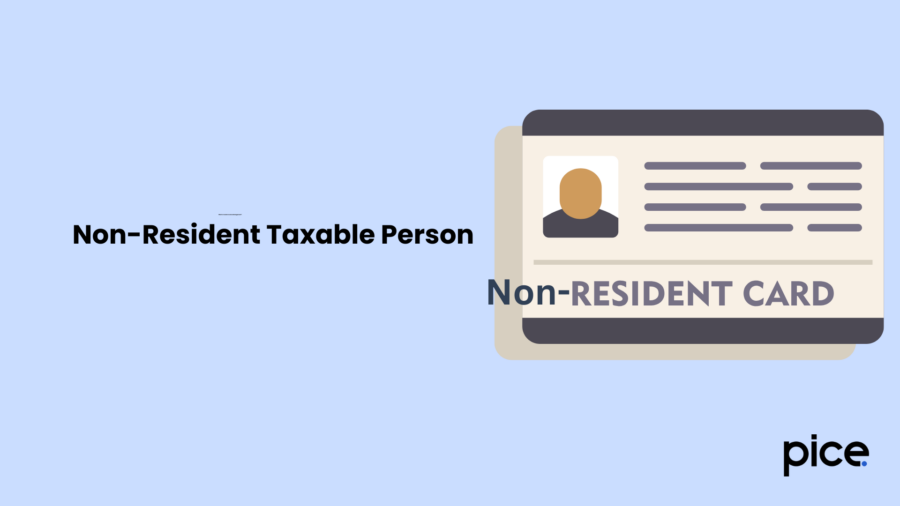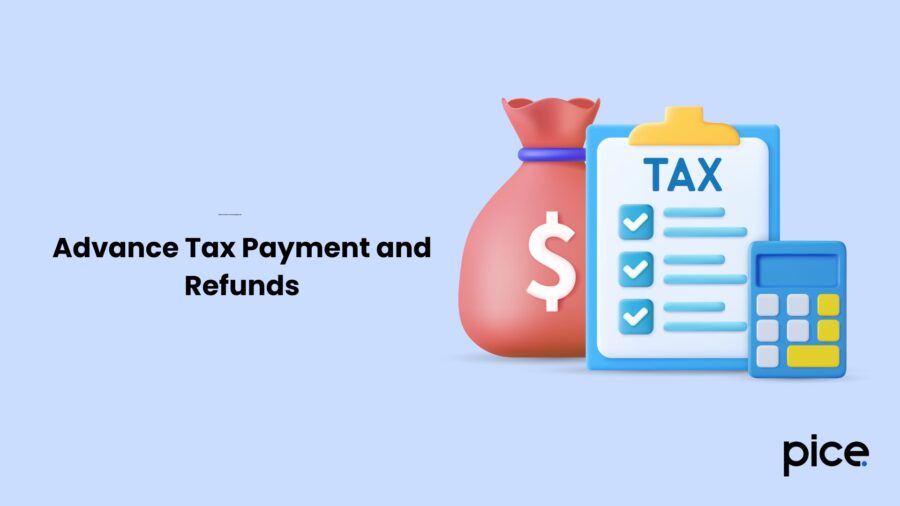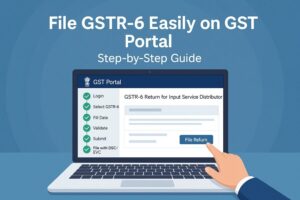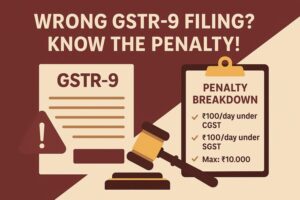Non Resident Taxable Person Under GST in India: (NRTP)
- 19 May 25
- 7 mins

Non Resident Taxable Person Under GST in India: (NRTP)
Key Takeaways
- NRTPs must register under GST in India regardless of turnover or transaction frequency.
- They are ineligible for GST composition schemes and must pay tax in advance.
- A valid passport, tax ID, and authorized Indian signatory with PAN are mandatory for registration.
- NRTPs face challenges like currency fluctuations, logistics coordination, and navigating Indian tax laws.
- Unutilized input tax credit or excess tax can be refunded post settlement of liabilities.
The Goods and Services Tax (GST) system in India is designed to encompass various types of taxpayers, including those who do not have a fixed place of business in India but supply goods or services within the country. One such category is the Non-Resident Taxable Person (NRTP) under GST.
A non-resident taxable person under GST (non-resident individual/non-resident taxpayer/foreign entity) might undertake businesses from a foreign country by supplying goods and services in India. As a result, currency exchange fluctuations and GST laws in India followed by logistics and administration, impact their business operation.
Learn in detail about non-resident taxable persons (NRTP) and their GST registration norms in India here.
Who Is a Non-Resident Taxable Person (NRTP)?

The Goods and Services Tax regulations identify non-resident taxable persons as individuals supplying goods in India with no fixed residence or place of business in the country. Section 24 of the GST Act mandates GST registration of non-resident taxable persons in India.
They need to register themselves irrespective of the aggregate annual turnover threshold of ₹20 lakh or ₹10 lakh on taxable supply (taxable transaction). In addition, the registration process remains the same for NRTPs to acquire a registration certificate irrespective of whether the business is involved in a one-time transaction or multiple transactions (validity period of registration).
Key Features of an NRTP
Here are the key features of NRTP:
● GST registration is mandatory for NRTP in India using the GST portal (common portal).
● This registration helps NRTP acquire a GSTIN (Goods and Services Tax Identification Number) for a seamless supply of goods and services in the country. It further marks the commencement of business operations for such a business entity.
● NRTP does not need a permanent residence or place of business in India.
Registration Requirements for NRTPs
The following are the registration requirements for NRTP:
● Irrespective of the transaction volume and minimum threshold limit for GST registration, an NRTP must register under GST.
● NRTP taxpayers are ineligible for the composition scheme under GST regulation, which has provisions for lower tax rates.
● You must go through the application for registration under GST at least 5 days before business operation commencement.
● As an NRTP, you must present a valid passport for GST registration in India.
● An NRTP needs to provide a tax identification number or unique identification number for GST registration in India.
Documentation for Registration
Here are the documents for NRTP application of registration:
● Proof of appointment of authorized signatory
● Letter of authorisation
● Board resolution passed by directors/ managing committee and acceptance letter
● Photo of the authorised signatory
● Proof of principal place of business
● Bank account details such as a cancelled cheque, first page of passbook or bank statement
If the place of business is owned, you need a property tax receipt, municipal copy, electricity bill or legal documents. If the property is rented, you need to present the rent or lease agreement in addition to the above documents. Ensure you present a no-objection certificate along with the rent receipt.
You need to provide a consent letter mentioning permission to carry out trade from the concerned place of business activities. If there are additional requirements, you might have to provide other legal ownership documents.
Compliance Obligations for NRTPs
Here are the compliance obligations for NRTPs:
● There needs to be an authorised signatory in India with complete data available to continue business operations.
● The authorised signatory needs to possess a valid PAN card (Permanent Account Number)
● This authorised signatory needs to have a registered mobile number for seamless contact and communication
● The authorised signatory should have a valid email address
● NRTP needs to hold a valid tax identification number or unique identification number followed by a PAN number.
Advance Tax Payment and Refunds

A non-resident taxable person needs to pay taxes in advance. In other words, an NRTP needs to ensure a deposit of tax at least 5 days before business commencement (advance tax deposit), as per GST laws. The advance payment of tax is initially credited to the electronic cash ledger and adjusted later with the actual tax liability.
Further, an NRTP needs to furnish an application in Form GST REG-11 before the end of the registration date (time of registration), along with an advance deposit, for the GST registration application in India. When the registration period expires, NRTPs can claim the unutilised input tax credit (ITC) or excess tax they have paid once they settle the tax liabilities resulting from the supply of goods and services.
Threshold Exemption
NRTPs need to register under GST regardless of their turnover. Notably, they can not enjoy the benefits of threshold limit exemption while supplying goods or services in India.
Challenges and Considerations for NRTPs
Here are the challenges that NRTPs face:
● Knowing GST Laws: As GST laws are restricted to supplies within India, NRTPs often face challenges in comprehending and aligning with the tax laws that differ from those in their residential country.
● Logistics and Administration Challenges: NRTPs usually operate from abroad by cooperating with Indian authorities. Compliance management thus creates challenges in streamlining logistics and administration.
● Currency Exchange Fluctuations: Currency exchange fluctuations affect the tax management process as paying GST in Indian Rupees is often challenging for NRTPs with such fluctuations.
Conclusion
A non-resident taxable person under GST has to register mandatorily as per the Indian tax laws. However, they do not have any threshold or exemption for GST registration in India. In other words, irrespective of the turnover threshold, NRTPs need to register under GST to conduct foreign businesses in India, whether temporarily or for the long term.
Addressing the challenges of Indian tax laws, managing logistics and administration with effective currency exchange fluctuation, and transaction management can simplify supplies for NRTPs.
💡If you want to streamline your invoices and make payments via credit or debit card or UPI, consider using the PICE App. Explore the PICE App today and take your business to new heights.
 By
By 

















